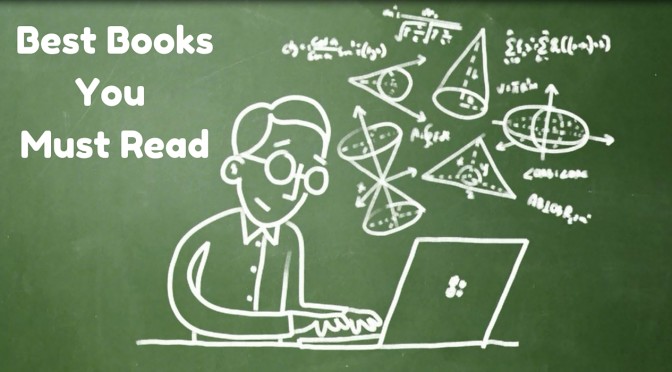
Science is a very important input in anyone’s academics. It explains the many different phenomenons we know and is responsible for the milestones achieved in many different industries in the world. Infact, even the human origin can be explained scientifically. Science is a broad subject that entails other subjects like physics, mathematics and many others. In math, you learn real theory of math like theorems, in physics you learn quantum physics and theory of relativity and in computer science you learn about programming and artificial intelligence. Science generally aims at making work easier and gives us methods we can apply when dealing with any real life situation.
Below is a list of best books you must read while studying mathematics, physics and computer science.
In How Not to Be Wrong, Jordan Ellenberg tries to explain to you that math is not rules set by earlier scientists that have no meaning in the current society. He insists that math affects almost everything you do every day; like when moving from point A to point B and there are a range of options of paths to follow, you will most likely choose the shortest route of all. Math helps you to understand and appreciate the logics behind everything you do. For example, in the above scenario, you choose the shortest route to save time and fuel. It helps you to analyze and get true meaning of any information.
According to Ellenberg, math is,” An atomic-powered prosthesis that you attach to your common sense, vastly multiplying its reach and strength.” Having a good grasp of mathematics will help you understand the world better
In the end of the 20th century, Nikola Tesla greatly contributed to the electrical revolution that changed the daily lives of the human beings. His works formed the basis of modern AC electricity and made a great contribution to the development of radio and television. Tesla was a celebrity scientist who was a gifted showman.
Astrophysicist Pedro Ferreira gives meaning to general relativity through the story of the intelligent physicists, mathematicians and astronomers who have dedicated themselves to study about it.
Einstein’s theory of relativity explains the relationship among gravity, space and time and is the perfect achievement of modern physics. General relativity helps us to understand the origin of time and the evolution of all the stars and galaxies in the cosmos.
Alan Turing is the father of the computers and the artificial intelligence we use today. In 1936, Alan Turing in his Concept of Universal Machine, set grounds for modern computers. Nine years later (in 1945), he brought the idea to practical realization with electrical design.
Alan Turing also helped to break the German Enigma Ciphers during World War II. This was a scientific triumph that directly contributed to Allied victory in the Atlantic.
Knowledge and mastery of the above subjects has contributed greatly to the many innovations and technological advancement we enjoy today.
Featured Image Source: news.microsoft.com